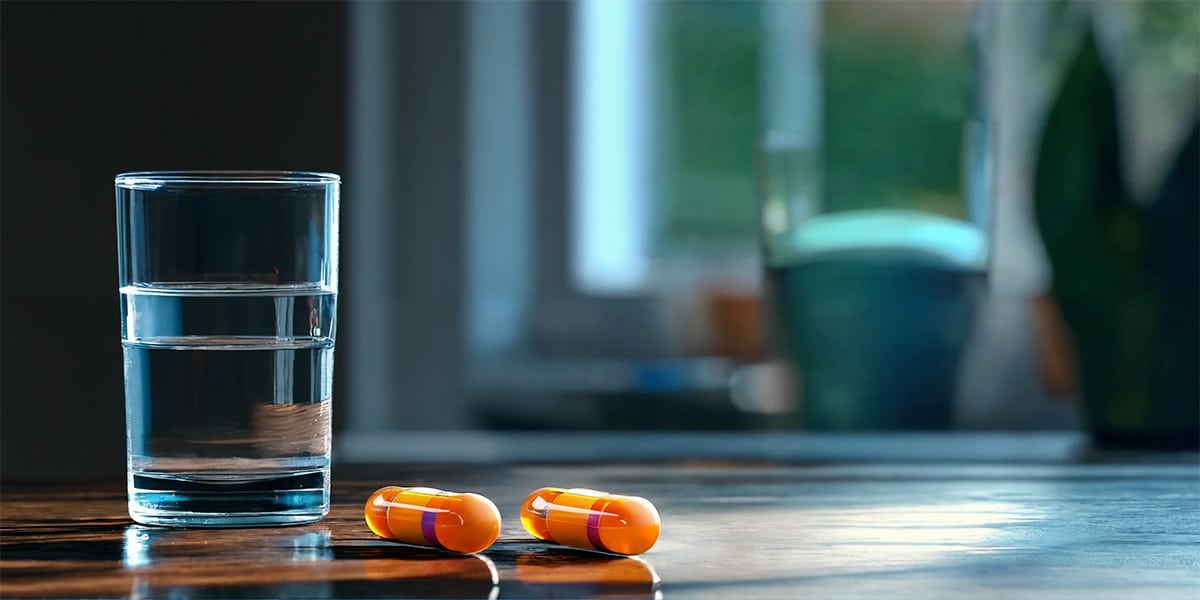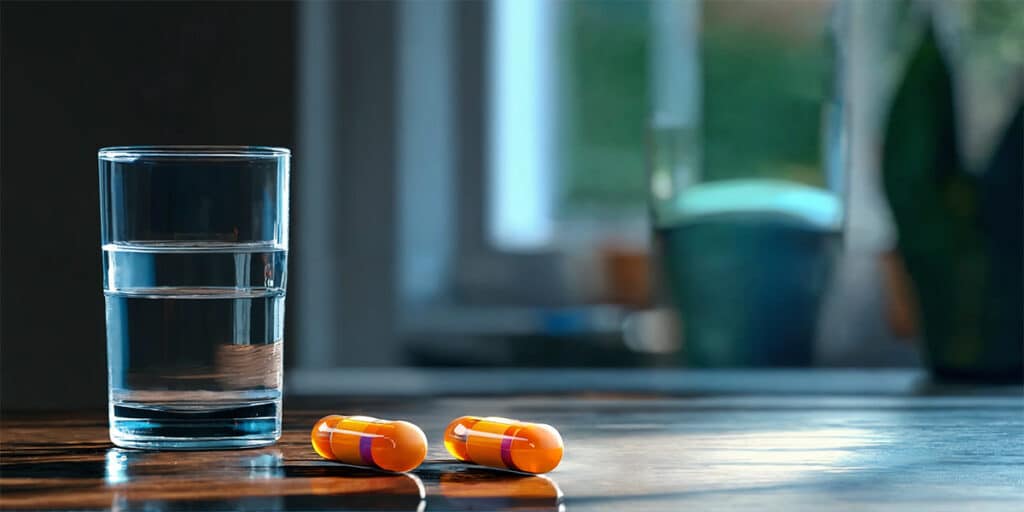Many individuals rely on medications for chronic conditions, often without considering the side effects these drugs can have on oral health. Among these side effects, drug-induced sensitivity in the mouth is a significant issue that can undermine the quality of life and complicate everyday activities like eating, drinking, and oral hygiene. Understanding and managing this type of sensitivity is crucial for maintaining not only oral health but overall well-being.
Exploring the Link Between Medications and Oral Health
The mouth is one of the first areas to experience the adverse effects of certain medications. Dry mouth, altered taste, and increased gum sensitivity are common complaints among those taking medications for conditions like hypertension, depression, and allergies. Interestingly, more than 500 commonly prescribed drugs list dry mouth as a side effect. This condition, known medically as xerostomia, significantly heightens the risk for cavities, gum disease, and tooth sensitivity as saliva is essential for neutralizing acids produced by bacteria in the mouth and washing away food particles.
Identifying Common Culprits
Several classes of medications are notorious for causing oral discomfort. These include:
- Antihistamines and Decongestants: Often reduce saliva flow, which can exacerbate mouth dryness and sensitivity.
- Antihypertensive Drugs: Medications such as ACE inhibitors and diuretics can alter taste sensations and decrease saliva production.
- Antidepressants: Many in this category can cause dry mouth and affect the health of your gums and mucous membranes.
Each of these drugs interacts with your body’s chemistry in a way that can indirectly affect your oral tissues, making them more susceptible to irritation and sensitivity.
Several classes of medications are well-documented for causing oral discomfort, each interacting with the body’s chemistry in ways that can inadvertently compromise oral health. Here’s a deeper look into how specific medications impact oral tissues and contribute to issues like dry mouth, altered taste, and increased sensitivity.
Antihistamines and Decongestants:
These medications are commonly used to alleviate symptoms of allergies and colds, such as runny nose and congestion. However, they work by reducing the activity of the acetylcholine neurotransmitter, which is also responsible for stimulating saliva production. Reduced saliva flow can lead to dry mouth, making the oral environment more acidic and susceptible to bacterial growth and decay. This environment can significantly exacerbate oral sensitivity and discomfort.
Antihypertensive Drugs:
- ACE Inhibitors: Often prescribed for high blood pressure, these drugs can cause a buildup of bradykinin, a peptide that may cause a persistent cough and contribute to dry mouth.
- Diuretics: Commonly known as “water pills,” diuretics increase urine production to remove excess fluid from the body. This process can also lead to dehydration, which in turn reduces saliva flow and can dry out the mouth, enhancing sensitivity and discomfort.
- Beta Blockers: While effective in managing blood pressure, beta blockers can decrease saliva production and sometimes lead to altered taste sensations, adding to the discomfort of dry mouth.
Antidepressants:
This broad category includes several types of medications, such as tricyclic antidepressants and selective serotonin reuptake inhibitors (SSRIs). Both types can significantly reduce saliva production. Dry mouth associated with antidepressants isn’t just uncomfortable; it can exacerbate gum disease and lead to infections in the oral cavity due to decreased natural washing and protective mechanisms of saliva.
Additional Medications That Impact Oral Health:
- Anticonvulsants: Drugs such as phenytoin, used for controlling seizures, can promote gum overgrowth, a condition where gum tissue becomes swollen and covers more of the teeth than normal. This can make routine oral hygiene challenging and increase the risk of periodontal disease.
- Immunosuppressive Agents: Medications like cyclosporine, used to prevent organ transplant rejection and to treat autoimmune diseases, can also cause gum overgrowth, leading to similar issues as anticonvulsants.
- Opioids: Often prescribed for pain relief, opioids can reduce saliva production and lead to dry mouth, which increases the likelihood of dental decay and gum disease.
The interaction of these drugs with the body’s chemistry can indirectly affect oral tissues, making them more susceptible to irritation and sensitivity. Awareness and proactive management of these side effects are crucial in maintaining oral health while on these medications. Regular consultations with healthcare providers, staying hydrated, using saliva substitutes, and maintaining excellent oral hygiene can mitigate these effects and maintain oral health.
| Solution Type | Product/Method | Description | Benefits |
|---|---|---|---|
| Hydration Aid | Water | Regular intake of water throughout the day | Enhances saliva production, reduces dry mouth |
| Artificial Saliva | Biotene Oral Rinse | Moisturizing mouthwash designed to mimic natural saliva | Provides relief from dry mouth, protects against oral irritants |
| Saliva Stimulant | Xylitol-based gum | Sugar-free gum that stimulates saliva flow | Helps cleanse the mouth and reduce dryness |
| Oral Hygiene Tool | Soft-bristled toothbrush | Extra soft toothbrush for sensitive gums and teeth | Minimizes irritation while effectively cleaning |
| Dental Checkup | Regular dentist visits | Professional monitoring and maintenance of oral health | Early detection and treatment of medication-related oral issues |
Strategies to Counteract Medication-Induced Oral Sensitivity
The impact of medication-induced oral sensitivity can be substantial, but there are robust, evidence-based strategies available to manage these side effects effectively. Each of these strategies is supported by research and clinical studies, as well as backed by testimonials from individuals and endorsements from dental health professionals.
Stay Hydrated:
Hydration is crucial in combating dry mouth, scientifically known as xerostomia, which often results from various medications. A study published in the Journal of the American Dental Association highlights that increasing fluid intake can help restore saliva flow, which is vital for protecting teeth and gums from decay and infection. Dr. Jane Peterson, a dentist with over 20 years of experience, often tells her patients, “Think of water as a rinse that washes away food particles and buffers acid—it’s your first line of defense against dry mouth.”
Use Saliva Substitutes:
Saliva substitutes, such as mouthwashes and gels containing xylitol or carboxymethylcellulose, can provide relief by mimicking some properties of saliva. These products help maintain moisture in the mouth, making it easier to speak, chew, and swallow. A systematic review in the Cochrane Database of Systematic Reviews concluded that certain saliva substitutes significantly improve symptoms of dry mouth compared to no treatment or other alternatives. An anecdote from Michael, a patient who suffers from Sjögren’s syndrome, supports this: “Using a saliva substitute has changed my life. My mouth feels less like a desert, and my throat isn’t as scratchy anymore.”
Chew Sugar-Free Gum:
Chewing sugar-free gum is a dynamic way to stimulate saliva production. According to research from the International Journal of Dental Hygiene, the act of chewing gum increases the flow rate of saliva up to 10 times the resting rate. This saliva enhancement helps neutralize acids in the mouth, reducing the risk of dental erosion and cavities. Sarah, a regular user of sugar-free gum, shares, “I keep sugar-free gum with me at all times. It not only freshens my breath but also keeps my mouth from feeling dry throughout the day.”
Maintain Rigorous Oral Hygiene:
Maintaining a strict oral hygiene regimen is crucial for those experiencing medication-induced oral changes. Using a soft-bristled toothbrush minimizes gum erosion and irritation, while fluoride toothpaste helps strengthen tooth enamel and reduce sensitivity. The American Dental Association emphasizes the importance of fluoride in preventing tooth decay, particularly for individuals with dry mouth. Regular flossing is also vital, as it removes plaque that can lead to gum disease and further sensitivity.
Visit Your Dentist Regularly:
Regular dental visits are essential for monitoring and managing the effects of medications on oral health. Dentists can provide treatments such as fluoride applications or prescribe specific therapeutic mouthwashes to help manage dry mouth and sensitivity. Dr. Emily Taylor, a dental researcher, notes, “Many of my patients on long-term medications didn’t realize their oral health was deteriorating until symptoms became severe. Regular check-ups can catch these issues early, making them easier to manage.”
These strategies collectively form a comprehensive approach to managing drug-induced oral sensitivity. By integrating these practices into daily routines, individuals can mitigate uncomfortable symptoms and protect their oral health while continuing their necessary medical treatments.
Managing Drug-Induced Sensitivity: Key Takeaways
The Hydration-Boost Technique
Increasing your daily water intake is more than just good general health advice—it’s a crucial strategy for combating the drying effects of many medications. Hydration plays a vital role in maintaining adequate saliva levels, which are essential for neutralizing acids in the mouth and washing away food particles. By staying hydrated, you can significantly mitigate the risks of tooth decay and the discomfort associated with oral sensitivity. Remember, every sip of water is a step towards a healthier mouth.
The Artificial Saliva Solution
For those experiencing severe dry mouth, a condition often exacerbated by certain medications, artificial saliva products can be a lifeline. These products are designed to mimic the natural moisturizing and protective properties of saliva, helping to alleviate the discomfort of dry mouth. By maintaining moisture in the mouth, artificial saliva helps to prevent the various oral diseases that can arise from chronic dryness, such as periodontal disease and tooth decay. It’s a straightforward solution that can greatly enhance oral comfort and health.
The Stimulus-Response Strategy
Chewing sugar-free gum serves as an excellent proactive measure for stimulating saliva production. This simple action can have a profound effect on oral health: it not only maintains moisture in the mouth but also helps in mechanically cleaning teeth by dislodging food particles. Additionally, the increased saliva flow from chewing gum reduces the concentration of harmful bacteria, thereby protecting against tooth decay and gum diseases. Regular use of sugar-free gum can be a particularly effective way to enhance oral hygiene and manage sensitivity.
By incorporating these key strategies into your daily routine, you can effectively manage the challenges of drug-induced oral sensitivity. Each approach offers a practical way to protect and improve your oral health while dealing with the necessary medications. This proactive management not only enhances your dental well-being but also significantly contributes to your overall quality of life, ensuring that your mouth remains healthy and comfortable.
Managing Drug-Induced Sensitivity: Your FAQs Answered
What causes drug-induced oral sensitivity?
Drug-induced oral sensitivity often results from medications that reduce saliva production, leading to dry mouth, which increases the risk of tooth decay and gum disease.
Which medications are most likely to affect my oral health?
Medications that can impact oral health include antihistamines, decongestants, high blood pressure medications, antidepressants, painkillers, and diuretics.
Can I prevent oral sensitivity caused by medications?
While you may not be able to completely prevent it, you can manage and reduce its impact by staying hydrated, using saliva substitutes, practicing good oral hygiene, and regularly visiting your dentist.
What are saliva substitutes?
Saliva substitutes are over-the-counter products that help moisten the mouth. They are available as sprays, gels, or lozenges and can alleviate the discomfort of dry mouth.
Why is chewing sugar-free gum recommended for dry mouth?
Chewing sugar-free gum stimulates saliva production, which helps cleanse the mouth and relieve the dryness and discomfort associated with reduced saliva flow.
How often should I visit the dentist if I'm taking medication that affects my oral health?
If your medication affects your oral health, it’s wise to visit your dentist at least every six months or more frequently if recommended by your dental care provider.
What should I tell my dentist about my medications?
Inform your dentist about all the medications you are taking, including over-the-counter drugs and supplements, as this will help them better understand your risk for oral health issues and tailor your treatment.
Can changing my medication stop oral sensitivity?
In some cases, adjusting your medication can help, but always consult your healthcare provider before making any changes to your prescribed treatment.
Are there any specific foods or drinks I should avoid?
Yes, avoid acidic and sugary foods and drinks as they can exacerbate tooth decay, especially when your mouth is dry.
What should I do if I suddenly experience severe oral pain?
Severe oral pain should be addressed by a professional as soon as possible. Contact your dentist or doctor to determine the underlying cause and appropriate treatment.
References
“Current Opinion on Drug-induced Oral Reactions: A Comprehensive Review”: This comprehensive review, published in the Journal of Contemporary Dental Practice, presents an update on drug-induced oral reactions.
“From the Cover: Drug-Induced Taste Disorders in Clinical Practice and Preclinical Safety Evaluation”: Published in Toxicological Sciences, this study discusses the clinical status of drug-induced taste disorders in patients.
“Oral adverse effects: drug‐induced tongue disorders”: Published in Oral Diseases, this study provides an overview of drugs that are known to be accompanied with tongue disorders as an adverse effect.








